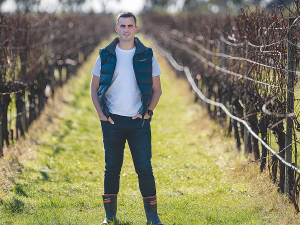NZ Catchment Groups Thrive with ‘Source to Sea’ Approach
The most successful catchment groups in NZ are those that have 'a source to sea' approach.
 Ryan Higgs, co-founder and CEO of Onside, which is developing a biosecurity app with the support of a $4 million MPI grant.
Ryan Higgs, co-founder and CEO of Onside, which is developing a biosecurity app with the support of a $4 million MPI grant.
Christchurch-based Agritech company, Onside, has secured a $4 million grant from MPI to help develop biosecurity technology, which it claims can effectively predict where biosecurity incursions are likely to occur.
It is already rolling out systems tailored for the kiwifruit and viticulture industries, both here and in New South Wales.
Onside was launched in 2016, initially as a check-in-checkout app for farmers to manage farm access by visiting contractors.
Co-founder and chief executive Ryan Higgs says it is now developing biosecurity software, which it calls Onside Intelligence (OSI). This uses data from a range of sources and "clever algorithms" to map rural networks and potential disease pathways and predict where incursions are likely to occur.
Agriculture Minister Damien O'Connor recently announced the grant, saying OSI would map rural interactions in a much faster way than previously, potentially saying hundreds of millions of dollars by helping the speed of a response.
"Our investment, together with Onside's $6 million contribution, means a quick scale-up and adoption by the sector. The more farms that use Onside, the more effectively and accurately we will be able to manage future biosecurity risks," O'Connor says.
Higgs says that by mapping pathways around an agri-sector, OSI provides advanced biosecurity readiness to figure out whether disease is likely to pop up, and how to respond in the fastest and most efficient way.
"We have some special algorithms that, particularly from an early detection standpoint, are able to figure out where things are likely to pop up before thye actually have."
He explains that just as you might stop movement across Cook Strait to stop a disease spread, the software identifies those properties that are the most active "bridges" between different parts of a sector. If there is an incursion, these are the properties that will get it first and will have the biggest impact on spread.
"But they also are great at allowing you to be confident that there's not disease cycling through, so also great at proving freedom of disease," Higgs explains.
He says the key to what Onside is doing differently to other biosecurity apps is the quality of its "really complex data science" in mapping rural networks.
Onside has recently partnered with Kiwifruit Vine Health to use the technology in KVH's Plant Pathway Plan, a biosecurity programme for the $4 billion kiwifruit sector. Higgs says Onside already has massive coverage in the kiwifruit sector so it will be easy for growers to do their plant pathway mapping requirements.
Speaking to Rural News from Sydney airport, following a meeting with the New South Wales Department of Agriculture, Higgs says the company is also about to roll out to the NSW viticulture sector, and there were further projects underway there.
Meanwhile, he says the original Onside app has developed into a "comprehensive digital toolkit" to help manage agriculture and horticulture operations and compliance, currently used on over 14,000 properties aross New Zealand, Australia, and the UK.
The basic version is free, with more advanced features available in paid versions. The app is for both farmers and contractors who frequently visit Onside farms, but there are other ways for casual farm visitors to check in including a kiosk and QR codes.
Brains Trust
Higgs is a Fulbright scholar with a PhD in Animal Science.
Heading the company's network data algorithm is another Kiwi PhD, Hautahi Kingi, whom Higgs met at Cornell University. Kingi is now based in New York. Meanwhile, the pair are also working with academics at Indiana University.
"Understanding the risk of a biosecurity incursion is a complex problem in large networks so we have sought out the best scientists in the world to work with us," says Higgs.
The Meat Industry Association of New Zealand (MIA) today announced that Chief Executive Officer Sirma Karapeeva has resigned from the role.
The winners of the 2026 Hawke’s Bay/Wairarapa Dairy Industry Awards were announced at the annual awards dinner held at Copthorne Solway Park in Masterton on Thursday evening.
Environment Southland is welcoming this week’s decision by the Environmental Protection Authority (EPA) to approve the release of Blaptea elguetai, a leaf‑feeding beetle that will help control the highly invasive Chilean flame creeper.
This March, the potato industry is proudly celebrating International Women’s Day on 8 March alongside the International Year of the Woman Farmer, recognising the vital role women play across every part of the sector — from paddocks and packhouses to research, leadership, and innovation.
Fruit trader Seeka posted a record profit and returns to shareholders in 2025.
Recent weather events in the Bay of Plenty, Gisborne/Tairawhiti, and Canterbury have been declared a medium-scale adverse event.

OPINION: A mate of yours truly reckons rural Manawatu families are the latest to suffer under what he calls the…
OPINION: If old Winston Peters thinks building trade relations with new nations, such as India, isn't a necessary investment in…